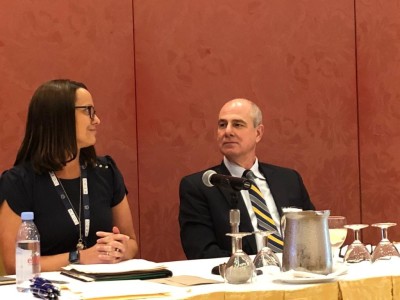In this session, Charles Mitchell, senior assistant city attorney for the city of Denver, CO, gave an overview of how legalization of marijuana has affected employers. He emphasized that it has not considerably changed employment law. This is because the use, possession and sale of marijuana is still strictly regulated. A person cannot stand on the street corner and smoke marijuana, nor can a person drive impaired as a result of marijuana use for example. Along the same line, no employer is obligated to accommodate the use, consumption or possession of marijuana. On-site premise use is still prohibited and workplace impairment is still prohibited. Even after work, in the privacy of one’s own home, if use violates an employer’s zero-tolerance policy, there will be consequences for that employee.
The city of Denver for example, prohibits city employees from possessing, consuming or being impaired by marijuana at work. Denver has drug testing, random drug testing, reasonable suspicion testing, post-accident testing and return-to-work testing. Thus, despite the voters of Colorado approving recreational marijuana in 2012, there are strict laws in place governing its use, possession and sale, as well as a comprehensive licensing and regulatory scheme that must be followed. Employers are free to develop their own policies, however strict, with regard to marijuana use and possession.
Jennifer Rigterink, legislative associate of the League, also outlined some of the guidelines that will be in place for municipalities should the voters in Michigan approve recreational marijuana this November.

